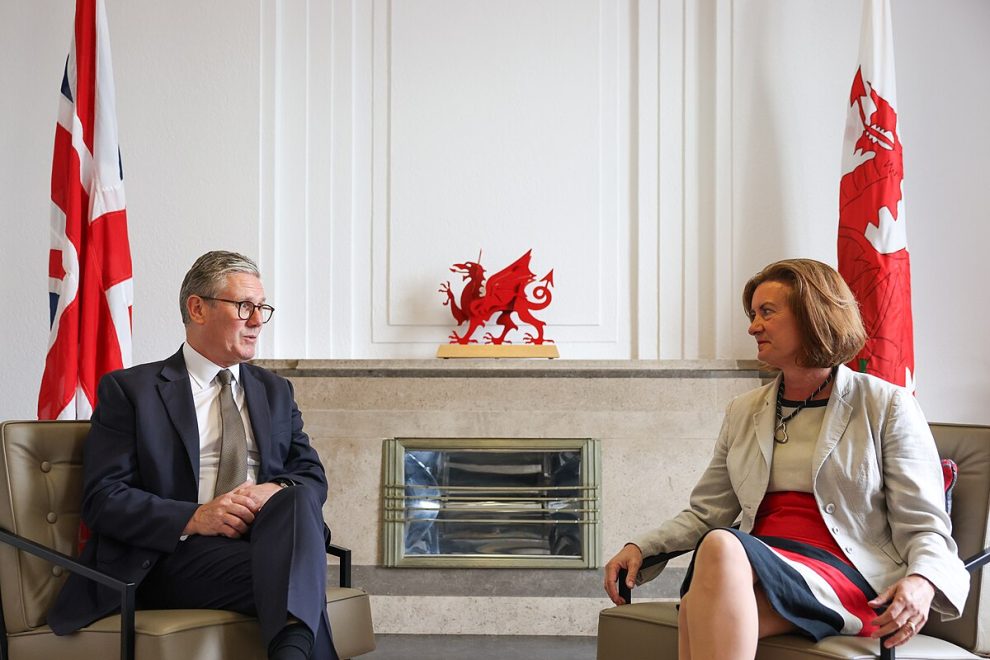THE PRIME MINISTER’s announcement of stricter rules on legal immigration, including curbing the influx of overseas workers to the UK’s creaking social care sector, led to controversy this week as backbenchers and senior party members expressed disquiet.
Labour’s – and the Conservatives’ – disastrous showing in the English local elections was almost immediately followed by stinging criticisms from within Labour’s local government cohort of the Labour government’s decision to means-test Winter Fuel Allowance and target benefit claimants. The Labour leadership’s response was to say, in terms, we won’t turn back. We will press on with our programme.
Except, that is, on immigration.
It was only coincidental that ten days after taking a shoeing, Keir Starmer came forward with plans to restrict legal immigration to the UK. It was not, let’s be clear, a cynical stunt by a governing party stunned by its unpopularity.
A White Paper is forthcoming, and Mr Starmer has claimed it will end low-skilled migration into the UK, clamp down on alleged abuses in the system of legal migration, and change the regime underpinning leave to stay in the UK. To reiterate, these measures are intended to curb LEGAL migration.
Sir Keir Starmer’s shift on legal migration to the UK is almost complete. From welcoming overseas workers as essential to maintaining public services, such as the NHS and social care, he now wants to cut the UK’s dependence on them.
It’s not as if the need for the UK to source, train, and supply its lower-paid workforce from within its citizens is a bad idea. However, the UK is not in that position and won’t be for years. Starmer’s dots don’t connect to create a coherent picture.
RATTLED AND RATTY – STARMER UNDER PRESSURE
Disquiet among Labour’s backbench MPs and from local government heavyweights, Sir Sadiq Khan and Andy Burnham, indicates getting the changes onto the statute book will be trickier than a massive House of Commons majority might suggest.
Worst of all, the PM has left himself under pressure for his choice of language (“an island of strangers”), which echo remarks made by Enoch Powell, for going too far to appease anti-immigration sentiment, and for not going far enough by Reform UK and the artist formerly known as the Conservative Party.
He is certainly feeling that pressure, as his rattled and ratty response to a question from Plaid Cymru’s Liz Saville-Roberts at PMQs showed.
In fairness to Mr Starmer, it was a spectacularly nasty question, which threw the PM’s previous views on immigration back at him and capped them with: “It seems the only principle he consistently defends is whichever he last heard in a focus group. I ask him if there is any belief he holds that survives a week in Downing Street.”
His response might come back to haunt Mr Starmer: “Yes”, he shot back, “the belief that she talks rubbish.”
The problem the PM has is that he has so often and so loudly promoted legal migration to support the healthcare and social care sectors that evidence of the completeness of his U-Turn on the topic will continue to be thrown at him. In the future, he will have to do far better when they are. As an experienced barrister, Mr Starmer should know that when a question rattles a witness, it’s usually a sign they are not telling the whole truth and nothing but it.
DISCONNECTED GOVERNMENT
The content of the Prime Minister’s announcement of a new policy on migration came as a surprise to his colleagues in the UK’s devolved governments. Such a surprise reveals a lack of connectedness or unity within Labour on a key issue.
On Tuesday, Darren Millar, the Welsh Conservative Leader, took the chance to explore that raw nerve.
Mr Millar asked Eluned Morgan whether she agreed that “immigration to the United Kingdom is too high and that we risk becoming an island of strangers?”
Baroness Morgan tried ducking the question: “I will not be drawn into a debate where people are using divisive language when it comes to immigration.”
Instead of picking up on the big flashing beacon (“People are using divisive language”, which invites a gentle inquiry as to whether by “people” she means the Prime Minister), Mr Millar rehashed his first question with some added goads.
The First Minister ducked the question again: “I recognise that there are concerns in some of our communities, but I would point out that the levels of immigration in Wales are actually quite low.”
She then added that, if implemented as announced, Westminster’s policy would affect the delivery of health and social care in Wales.
Darren Millar tried asking his first two questions again.
“Look,” Baroness Morgan said, “if you wanted to discuss immigration, you should have gone to Westminster. We do not have responsibility. I think that it is important for us to recognise that there will be challenges due to these proposals.”
WELSH GOVERNMENT NOT TOLD ABOUT PROPOSALS
The following day, a topical question to the Welsh Government’s Minister for Social Care, Dawn Bowden, posed by Plaid Cymru’s Mabon ap Gwynfor, exposed the extent of Labour’s divisions.
Mr Ap Gwynfor not only pointed out the PM’s implicit assertion that care staff are low-skilled, but he also asked a pointed question: “Did this Government have any prior engagement with the UK Government on the proposal to end visas for overseas social care recruitment?”
The answer was none. The benefits of having the same party in power at either end of the M4 did not extend to considering how the change in policy might affect Wales.
Ms Bowden also confirmed that the Welsh Government can’t assess the policy’s potential impact because it doesn’t have access to data specific to Wales.
Ms Bowden told MSs: “We already have recruitment and retention challenges in social care, and international recruitment has been a feature of how we can fill those vacancies.”
She said there would be “conversations with the UK Government.
Doubtless, those “conversations” will have much the same outcomes as the “conversations” on Winter Fuel Allowance, reforming the Barnett Formula, benefits cuts, inheritance tax on family farms, HS2, and the devolution of the Crown Estate.
It’s not a conversation if the other party isn’t listening.














